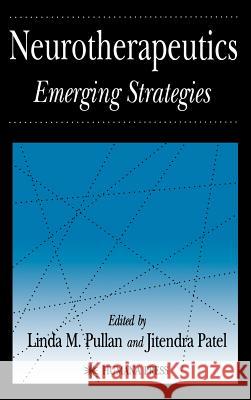Neurotherapeutics: Emerging Strategies » książka
Neurotherapeutics: Emerging Strategies
ISBN-13: 9780896033061 / Angielski / Twarda / 1995 / 434 str.
Neuroscience's inherent complexity and rapid growth mean that no one can keep abreast of all the changes across the field. We each bring a necessarily narrow perspective. Neurotherapeutics: Emerg- ing Strategies is an attempt to provide some diverse perspectives within the hunt for new drugs to treat central nervous system diseases. The book's premise is that the search for new drugs is based on an understanding ofboth clinical and basic sciences. Neurotherapeu- tics: Emerging Strategies begins with psychiatry and concludes with neurological disorders. Each chapter examines a disease, including clinical features and existing treatments, but the emphasis is on current concepts of underlying causes and novel strategies for drug discovery arising from these possible mechanisms. Participating authors include basic neuroscientists, industry-based pharmacolo- gists and chemists, and clinicians. The chapters describe the status of the existing disease treat- ments, and when treatments are lacking, the approach is more basic science oriented. When there is a long history of treatment, there is greater emphasis on those therapies. However, all the chapters seem to reflect the benefits of cloning, since the availability of receptor subtypes now promises the opportunity for greater specificity of drug effects. Modulation of second messengers is another new and recur- ring theme. And in the chapter on cachexia, cytokines are explored both as drugs and drug targets. Neurotherapeutics: Emerging Strategies reflects the complex- ity of the nervous system, but the overriding message is hope for new and better drugs to treat those diseases that rob us of ourselves.











